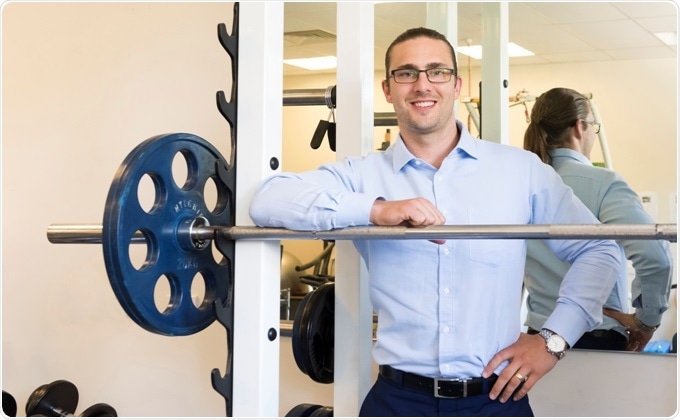Apr 29 2017
Having your healthcare professional prescribe you a dose of bench presses to ward off an infection or help heal an injury may sound like shonky healthcare but could actually be the advice of the near future, according to Griffith University scientists.

This is the finding from a new study showing that resistance exercise administered at different doses results in unique increases in key white blood cells in the circulation, all of which are either central to immune defense against infection or aid in injury healing.
Published in Immunology Letters, the study collated and analyzed the results of 16 previous studies from 1989 to 2016, which investigated participants undertaking a single session of resistance exercise encompassing various exercises.
“We combined the data from all relevant scientific publications, including two of our own original articles, to conduct a stringent systematic analysis of the resistance exercise research,” says Dr Adam Szlezak from Griffith’s Menzies Health Institute Queensland.
“We already knew that aerobic exercise such as moderate intensity walking (e.g. 20min/day for 5 days per week) could stimulate the immune system and reduce the risk of upper respiratory tract infections (URTI), but not a great deal was known about resistance exercise in particular, and specifically if the dose (or amount) of resistance exercise would make a difference.
“From analyzing all16 studies, we found that both high and low dosages of resistance exercise increased the immune system’s surveillance potential in the participants in a similar way to that of aerobic exercise. Even a low dose of thumb resistance exercise increased the number of key white blood cells in the circulation.
“Importantly, we also found that at higher dosages of exercise (such as a circuit protocol), there appeared to be a more rapid and greater number of these cells in the blood.
Now that we know that different resistance exercise doses can result in distinct biological responses, much like drugs can, we now need to see if these responses can be used to reduce risk of URTI, as well as improve recovery from illness and injury, says Dr Szlezak.
Practically speaking, since resistance exercise appears to improve immuno-surveillance similar to that of moderate intensity aerobic exercise, regular moderate intensity 20-45 min work-outs in the gym may provide similar protection against URTI.
“It may even eventually be possible to prescribe resistance exercise in a healthy limb to improve the transport of white blood cells to an injured limb, aiding with healing and effectively changing the way we manage injuries.”
“Further research is of course, needed, but we can see that exercise immunology has the ability to make people totally rethink their reasons for exercise,” says Dr Szlezak. It may not just be for fitness and losing weight; it could also overhaul our whole approach to our health.”
“Finally, as we now know that exercise can markedly affect the number of white blood cells in the circulation for short period of time, General Practitioners requesting full blood counts for patients are advised to recommend that their patients abstain from all forms of exercise in the hours prior to blood collection.”